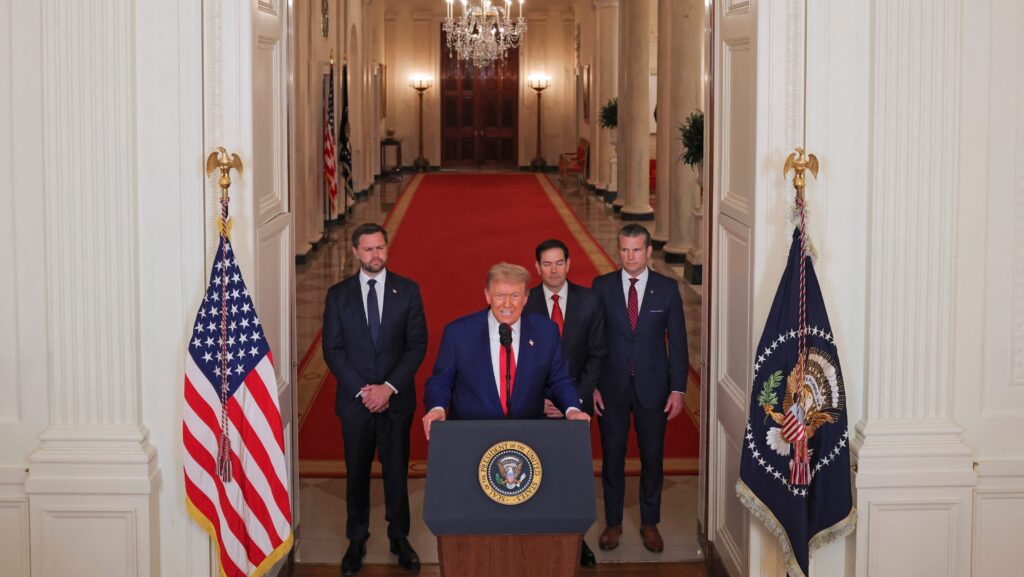President Donald Trump announced on Truth Social that the United States had conducted airstrikes on three Iranian nuclear program sites, including the Fordow enrichment facility, to prevent Iran from obtaining nuclear weapons. The decision was made after deliberation, with Trump believing military action was necessary to safeguard national security interests.
The legality of the attack has sparked debate, with some lawmakers, like Rep. Thomas Massie and Rep. Alexandria Ocasio-Cortez, questioning its constitutionality without congressional approval. The War Powers Resolution of 1973 mandates that the president inform Congress of military actions within 48 hours and withdraw forces within 60 days if war is not declared. Despite the intent to limit presidential war powers, presidents have interpreted the law as allowing for short-term military action without congressional consent.
While the power to declare war rests with Congress, the president has authority to respond to immediate threats. Trump likely had legal justification for the strike, given Iran’s nuclear ambitions and previous hostile actions. Past presidents, including Barack Obama, have taken similar military actions without explicit congressional approval.
Although a prolonged conflict would require congressional authorization, Trump’s actions align with past precedents and the need to address imminent threats. The bombing of Iran fits within the president’s authority to act decisively against potential dangers, balancing national security interests with constitutional principles.

